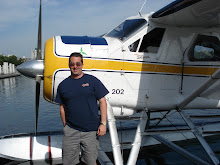Reg T. Stock 1933-

Reg Stock was born in 1933 and educated at Bedford Modern School. He joined the RAF in 1951 initially as a National Service Pilot and after flying training in the UK was posted to 94 Sqn, a day fighter/ground attack unit in Germany flying Vampire and Venom aircraft. During this time he was a member of the rocket-firing and formation aerobatic teams. After the squadron disbanded in 1957,he returned to England to serve on a Hastings squadron before volunteering for an instructor's course at the Central Flying School during which he was awarded 'Best Pilot' and 'Clarkson' aerobatic trophies. He then instructed on Piston and Jet Provost trainers at No2 FTS Syserston,near Newark,and also gave solo,synchronised and formation aerobatic displays. Leaving the RAF in 1961 he was appointed Jet Training Officer at Marshall's Flying School at Shawbury before joining Hunting Aircraft (later to become British Aircraft Corporation,Luton Division) as a test pilot.
He was deployed to Venezuela in 1963 to test the armed version of the Jet Provost which had been dismantled and shipped over from the factory. His low high speed pass heralding the acceptance of the first of fifteen aircraft caused the Chief mechanic to declare that the emergency radio aerial situated under the fuselage needed replacing because it had been scraped along the tarmac. Reg thinks he was joking!
At Luton he became heavily involved in high rotation spinning and anti-spin parachute trials. The most memorable of the former occurred in a standard RAF aircraft,unfortunately not fitted with test instrumentation. It was required to deliberately induce a high rotation spin with one tip-tank full and the other empty. He eventually had to take unconventional recovery action; his observer estimated the complete recovery to take 17 turns. More excitement was generated during high mach number trials where modifications to the aircraft's aerodynamics were introduced to extend the flight envelope. On such modification involved altering the undercarriage door bulge by smoothing it with balsa wood. During the test flight,at a much lower Mach number than anticipated,the aircraft suddenly pitched down to an instantaneous minus 6 g and then immediately entered a violent corkscrew motion. The modification was removed. When the Jet Provost was re-assigned to the Military Division in the aftermath of TSR.2,and work redistributed within BAC he transferred to Warton.
Reg Stock became the Jet Provost/Strikemaster Project Pilot and was in command of the first flights of both the Jet Provost Mk.5 (28th February 1967) and the BAC Strikemaster (26th October 1967). As well as the development flying of these two types (one of the most exotic of these being the jettisoning of the cockpit canopy during a spin), he did most of the customer demonstration and aerobatic display flights. The latter included the Farnborough Exhibitions in 1962,66,68,70 and the Paris Salon in 1969,71.
By October 1969 he had completed 1,000 test flights,joining the distinguished team of 'Bee' Beamont,Jimmy Dell,Des De Villiers and Tim Ferguson.
Deliveries of various aircraft were also made to Iraq,Sudan,Ecuador and to Saudi Arabia no fewer than 14 times. He also tested Jaguar and Canberra aircraft form the production line. Deployed to Ecuador in 1973 once again to test rebuilt aircraft, he was required to convert nine Ecuadorian pilots(quickly whittled down to four) on to the Strikemaster and include general handling,navigation,instrument and night flying plus bomb dropping,gunnery and rocket firing. All this in the space of less than two months - and some of them had never flown a jet aircraft before!.
Formation flying was of course only possible after the second one had been built and tested. In 1981, at the Ecuadorians' request he returned, together with a member of the technical support unit, to advise them on how best to improve all aspects of their training. His last association with Ecuador was in September 1977, when he delivered a Jaguar, routing across the Atlantic via Ascension Island.
In 1978, as well as test flying, he was appointed Senior Communications Pilot,being already TRE/IRE for HS125 and Cessna 400 series, the two types which were then company aircraft. In January 1983 he was promoted to Chief Communications Pilot.
In the late summer of 1984,whilst seconded to the Royal Flight to familiarise a member of the Royal Family with twin-engined flying,he was invited,at the age of 51 and after more than 22 years of test flying to relinquish his heavy boots,helmet and Mae West and relax in the comfortable seats of the civilian aircraft. As the company's flight examiner he still holds the written results of all the ten company test and communication pilots, but says they will forever remain confidential. Unless....
Reg Stock was awarded the Queen's Commendation for Valuable Services in the Air in the Birthday Honours List of 1981. He left the company to join Dan Air in February 1989.









<< Home